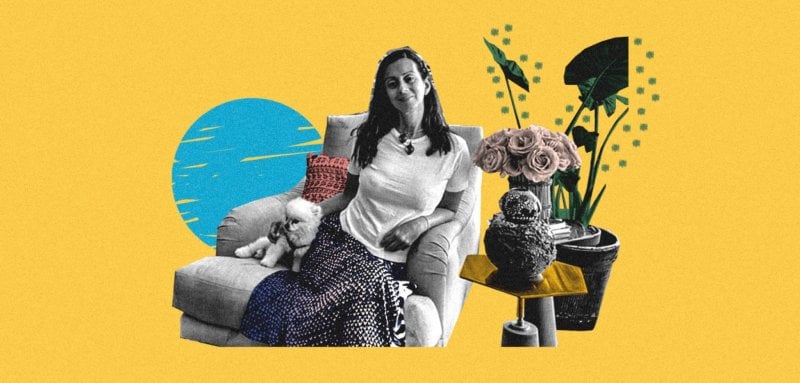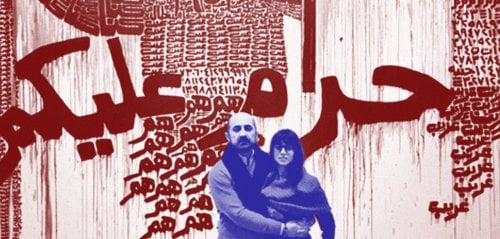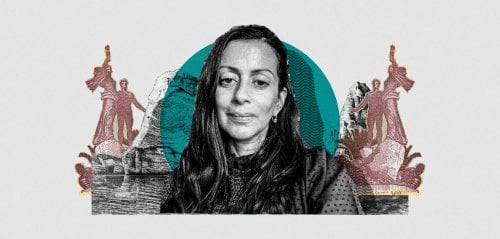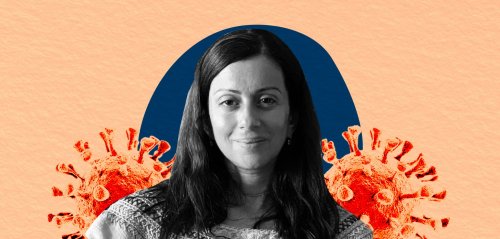Today I have a lovely story to share.
Early in February, a very dear friend fled New York City, choosing to spend the looming lockdown on Shelter Island, off the coast of Long Island. An apt name for a place in which to seek refuge. A few weeks into self-isolation, she struck up a conversation with an avid cyclist who would cycle past her porch every day. The chats multiplied and turned into more intimate talks. Emotions came into play and affection turned into something deeper. In a tumultuous and uncertain time, love blossomed and still endures. He is a tall English gentleman who went to the right schools (Harrow and Oxford) as did she on this side of the ocean (Columbia University). My blue-eyed, kind and generous friend seems to have found true love in the midst of a pandemic.
Love comes in different forms, but it is never easy. Nor is it always reciprocated. The Lebanese love their country with a passion reserved for a people that practically lost their nation. Since last November the country has been in an economic crisis that in certain moments seemed to bring people together, leading them to forget their hidebound political differences. Where is the love for country that is supposed to transcend tribalism? It continues to exist, but in a kind of nebulous limbo, unrequited and at times melancholic. The Lebanese people have been barely surviving in a loveless marriage for a very long time. Counseling is sorely needed but there must be a willingness from all sides for such an undertaking. The Lebanese have had their hearts broken for decades. There is no easy fix. The country may need the psychological insights of Freud, Jung, Lacan, Adler, Klein, Ferenczi to get all the parties to air their problems. I’m not optimistic that a deus ex machina will appear to rebuild Lebanon again but I will not despair of its salvation. It is a country worth fighting for but not at the price of its breaking apart.
The Lebanese people have been barely surviving in a loveless marriage for a very long time. Counseling is sorely needed but there must be a willingness from all sides for such an undertaking. The Lebanese have had their hearts broken for decades.
On a more positive note, I came across Adib Dada on Instagram, one of my favorite means of communication these days. The last time I had seen him was in Venice during the 2013 Biennale if my memory serves me correctly. I have over the years followed his efforts in creating a sustainability movement in Lebanon. In addition to his work as an activist, Dada heads his architectural firm, theOtherDada which spans interior design, master planning, environmental consulting and landscaping. He also leads a team of advisors and curators, and has set up a contemporary art collection promoting emerging local artists for Le Yacht Club in Beirut.
Most importantly perhaps, he has led a revolution in addressing the environmental crisis in Lebanon, using urban afforestation as a tool for social and ecological regeneration, particularly timely when the government infrastructure to promote this is crumbling. Thanks to his initiatives which cross cultural and political boundaries, the forest space provides a critical buffer between the city and the native ecosystem, bridging the gap between urban living and nature. Lebanon’s waste crisis which was precipitated five years ago by the closure of the last large landfill site with no contingency plan in place led to dystopian scenes with garbage being directly dumped into the city or piled up in mountains around the capital. The ensuing stench should have been a clarion call, a reminder of the fragile balance between man and nature. But still, the first reaction was a scramble for resources. During that same period, unauthorized dams have been built in pristine landscapes drowning whole ecosystems as well as architectural ruins. Something had to be done. When it comes to nature, everyone has skin in the game. The only problem is that too many people are focused on immediate gratification, financial or otherwise.
The Lebanese have had their hearts broken for decades. I’m not optimistic that a deus ex machina will appear to rebuild Lebanon again but I will not despair of its salvation. It is a country worth fighting for but not at the price of its breaking apart.
The idea of planting trees is a simple but powerful idea to counter the various effects of both urbanization and climate change. Dada’s efforts are important not because they are unique or particularly sophisticated (although they are), but rather because they are actually being undertaken. Last year theOtherDada partnered with the Bangalore-based social enterprise Afforestt to plant over 1200 trees and shrubs from 17 different native species in Beirut. An area was chosen next to a river which was enclosed in concrete in 1968 and which had been cut off from the local community and turned into a heavily polluted dumping ground. Nature will hopefully be allowed to do its job. The urban forest will clean the air, radically reducing flooding and recharging ground water with the process becoming self-sufficient within three years.
This could be the beginning of a green revolution, but as history has taught us, revolution – like love – is never easy.
You can never forget that the country’s symbol is a tree, the mighty cedar, emblazoned on the flag and on every emblem of the country. A few years ago, during the time when the country only had an acting president, I happened to find myself sitting in a government office. As I was waiting, I noticed that on the wall where the official presidential portrait would normally hang, there was an empty frame in which somebody had stuck a picture of the national flag. To me it was a sign that with or without a government, the nation will endure.
Raseef22 is a not for profit entity. Our focus is on quality journalism. Every contribution to the NasRaseef membership goes directly towards journalism production. We stand independent, not accepting corporate sponsorships, sponsored content or political funding.
Support our mission to keep Raseef22 available to all readers by clicking here!
Interested in writing with us? Check our pitch process here!








